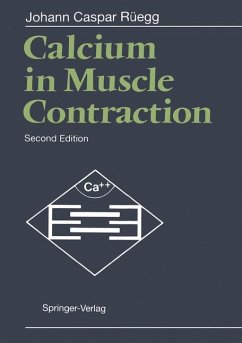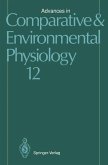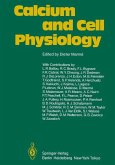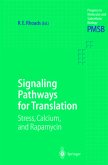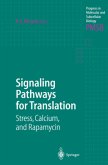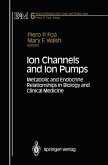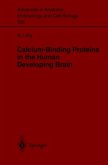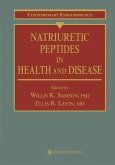- Broschiertes Buch
- Merkliste
- Auf die Merkliste
- Bewerten Bewerten
- Teilen
- Produkt teilen
- Produkterinnerung
- Produkterinnerung
Recent years have witnessed an explosion of knowledge lea-ding to a molecular understanding of the mechanisms of ac-tion of calcium on excitation and contraction coupling andits role in the regulation of contractility. This bookhighlights the most recent progress as well as providing ahistorial perspective of the field. It presents a conciseand comprehensive overview of our current knowledge regar-ding calcium channels and regulatory proteins as well as in-tracellular calcium handling and the mechanisms underlyingthe activation of contractile proteins. It also describeshow these basic…mehr
Andere Kunden interessierten sich auch für
![Muscle Contraction and Cell Motility Muscle Contraction and Cell Motility]() Muscle Contraction and Cell Motility77,99 €
Muscle Contraction and Cell Motility77,99 €![Calcium and Cell Physiology Calcium and Cell Physiology]() Calcium and Cell Physiology77,99 €
Calcium and Cell Physiology77,99 €![Signaling Pathways for Translation Signaling Pathways for Translation]() Robert E. Rhoads (ed.)Signaling Pathways for Translation116,99 €
Robert E. Rhoads (ed.)Signaling Pathways for Translation116,99 €![Signaling Pathways for Translation Signaling Pathways for Translation]() Signaling Pathways for Translation110,99 €
Signaling Pathways for Translation110,99 €![Ion Channels and Ion Pumps Ion Channels and Ion Pumps]() Ion Channels and Ion Pumps37,99 €
Ion Channels and Ion Pumps37,99 €![Calcium-Binding Proteins in the Human Developing Brain Calcium-Binding Proteins in the Human Developing Brain]() Norbert UlfigCalcium-Binding Proteins in the Human Developing Brain39,99 €
Norbert UlfigCalcium-Binding Proteins in the Human Developing Brain39,99 €![Natriuretic Peptides in Health and Disease Natriuretic Peptides in Health and Disease]() Willis K. Samson / Ellis Levin (eds.)Natriuretic Peptides in Health and Disease154,99 €
Willis K. Samson / Ellis Levin (eds.)Natriuretic Peptides in Health and Disease154,99 €-
-
-
Recent years have witnessed an explosion of knowledge lea-ding to a molecular understanding of the mechanisms of ac-tion of calcium on excitation and contraction coupling andits role in the regulation of contractility. This bookhighlights the most recent progress as well as providing ahistorial perspective of the field. It presents a conciseand comprehensive overview of our current knowledge regar-ding calcium channels and regulatory proteins as well as in-tracellular calcium handling and the mechanisms underlyingthe activation of contractile proteins. It also describeshow these basic mechanisms have been adapted in varioustypes of muscle, especially in cardiac and smooth muscle.
Produktdetails
- Produktdetails
- Verlag: Springer / Springer Berlin Heidelberg / Springer, Berlin
- Artikelnr. des Verlages: 978-3-642-77562-8
- 2. Aufl.
- Seitenzahl: 376
- Erscheinungstermin: 8. Dezember 2011
- Englisch
- Abmessung: 242mm x 170mm x 21mm
- Gewicht: 643g
- ISBN-13: 9783642775628
- ISBN-10: 3642775624
- Artikelnr.: 36118346
- Verlag: Springer / Springer Berlin Heidelberg / Springer, Berlin
- Artikelnr. des Verlages: 978-3-642-77562-8
- 2. Aufl.
- Seitenzahl: 376
- Erscheinungstermin: 8. Dezember 2011
- Englisch
- Abmessung: 242mm x 170mm x 21mm
- Gewicht: 643g
- ISBN-13: 9783642775628
- ISBN-10: 3642775624
- Artikelnr.: 36118346
Prof. Dr. med., Ph. D., Johann Caspar Rüegg, geb. 1930 in Zürich. Medizinstudium in Zürich und Dissertation beim Hirnphysiologen und Nobelpreisträger W. R. Hess. 1955-59 Studium der Biochemie an der Universität Cambridge, Promotion zum Ph. D. Bis 1967 Wissenschaftlicher Assistent am Max-Planck-Institut für Medizinische Forschung; 1963 Habilitation für Physiologische Chemie an der Universität Heidelberg; 1964/65 Senior Research Officer an der Universität Oxford; 1967-73 Wissenschaftlicher Rat und Professor am Institut für Zellphysiologie der Ruhr-Universität Bochum. 1973-1998 Ordinarius und Leiter des 2. Physiologischen Instituts der Universität Heidelberg. 1974 Adolf-Fick-Preis für Verdienste in Physiologie. 1981 Gastprofessor, seit 1985 Adjunct Professor in Physiologie an der Universität Cincinnati (Ohio). Seit 1998 korrespondierendes Mitglied der Schweizerischen Akademie der Medizinischen Wissenschaften.
1. Muscle Excitation and Contraction.- 1.1 Muscle Excitation.- 1.2 Electromechanical Coupling.- 1.3 The Contractile Process.- 2. The Sarcoplasmic Reticulum: Storage and Release of Calcium.- 2.1 Inward Spread of Excitation in the Transverse System (T-System).- 2.2 Calcium Release from the Sarcoplasmic Reticulum (SR).- 2.3 Calcium Reuptake by the Sarcoplasmic Reticulum.- 3. The Dependence of Muscle Contraction and Relaxation on the Intracellular Concentration of Free Calcium Ions.- 3.1 Crustacean Muscle.- 3.2 Vertebrate Skeletal Muscle.- 4. Calcium Binding and Regulatory Proteins.- 4.1 Structure and Function of Troponin.- 4.2 Alterations of Thin Filaments Trigger Contraction.- 4.3 Ancillary Calcium-Binding Proteins: Calmodulin, Parvalbumin, and Myosin Light Chains.- 5. Diversity of Fast and Slow Striated Muscle.- 5.1 Vertebrate Tonic Muscle Fibres.- 5.2 Comparison of Mammalian Fast- and Slow-Twitch Fibres.- 5.3 Diversity of Crustacean Muscles.- 5.4 Insect Flight Muscle.- 5.5 Obliquely Striated Muscle of Annelids and Nematodes.- 5.6 Generalizations and Conclusions.- 6. Myosin-Linked Regulation of Molluscan Muscle.- 6.1 Calcium Regulation in the Striated Adductor of the Scallop.- 6.2 Catch Muscles.- 6.3 Summary.- 7. The Vertebrate Heart: Modulation of Calcium Control.- 7.1 Calcium-Transport Mechanisms.- 7.2 Calcium Movements as the Link Between Excitation and Contraction.- 7.3 Myoplasmic Free Calcium, a Major Determinant of Contractility.- 7.4 Alteration of Contractility by Changes in Calcium Responsiveness of Myofilaments.- 8. Vertebrate Smooth Muscle.- 8.1 Contractile Mechanism.- 8.2 Calcium Activation of the Contractile Apparatus.- 8.3 Regulation of the Intracellular Calcium Ion Concentration.- 8.4 Modulation of Calcium Activation by Cyclic Nucleotides and G-Proteins.- 9. Principles of Calcium Signalling in Muscle.- 9.1 Senders of Calcium Signals.- 9.2 Transmission of Calcium Signals.- 9.3 Diversity of Calcium-Signal Receivers.- 9.4 Contractile Responsiveness to Calcium.- 9.5 Feedback Signals and Servoloops.- 10. Molecular Level Approaches to Excitation-Contraction Coupling in Heart and Skeletal Muscle.- 10.1 Calcium Channels in T-System SR Coupling and Calcium Release.- 10.2 Control of the Contractile Mechanism by Intracellular Free Calcium.- 10.3 Concluding Remarks and Future Prospects.- References.
1. Muscle Excitation and Contraction.- 1.1 Muscle Excitation.- 1.2 Electromechanical Coupling.- 1.3 The Contractile Process.- 2. The Sarcoplasmic Reticulum: Storage and Release of Calcium.- 2.1 Inward Spread of Excitation in the Transverse System (T-System).- 2.2 Calcium Release from the Sarcoplasmic Reticulum (SR).- 2.3 Calcium Reuptake by the Sarcoplasmic Reticulum.- 3. The Dependence of Muscle Contraction and Relaxation on the Intracellular Concentration of Free Calcium Ions.- 3.1 Crustacean Muscle.- 3.2 Vertebrate Skeletal Muscle.- 4. Calcium Binding and Regulatory Proteins.- 4.1 Structure and Function of Troponin.- 4.2 Alterations of Thin Filaments Trigger Contraction.- 4.3 Ancillary Calcium-Binding Proteins: Calmodulin, Parvalbumin, and Myosin Light Chains.- 5. Diversity of Fast and Slow Striated Muscle.- 5.1 Vertebrate Tonic Muscle Fibres.- 5.2 Comparison of Mammalian Fast- and Slow-Twitch Fibres.- 5.3 Diversity of Crustacean Muscles.- 5.4 Insect Flight Muscle.- 5.5 Obliquely Striated Muscle of Annelids and Nematodes.- 5.6 Generalizations and Conclusions.- 6. Myosin-Linked Regulation of Molluscan Muscle.- 6.1 Calcium Regulation in the Striated Adductor of the Scallop.- 6.2 Catch Muscles.- 6.3 Summary.- 7. The Vertebrate Heart: Modulation of Calcium Control.- 7.1 Calcium-Transport Mechanisms.- 7.2 Calcium Movements as the Link Between Excitation and Contraction.- 7.3 Myoplasmic Free Calcium, a Major Determinant of Contractility.- 7.4 Alteration of Contractility by Changes in Calcium Responsiveness of Myofilaments.- 8. Vertebrate Smooth Muscle.- 8.1 Contractile Mechanism.- 8.2 Calcium Activation of the Contractile Apparatus.- 8.3 Regulation of the Intracellular Calcium Ion Concentration.- 8.4 Modulation of Calcium Activation by Cyclic Nucleotides and G-Proteins.- 9. Principles of Calcium Signalling in Muscle.- 9.1 Senders of Calcium Signals.- 9.2 Transmission of Calcium Signals.- 9.3 Diversity of Calcium-Signal Receivers.- 9.4 Contractile Responsiveness to Calcium.- 9.5 Feedback Signals and Servoloops.- 10. Molecular Level Approaches to Excitation-Contraction Coupling in Heart and Skeletal Muscle.- 10.1 Calcium Channels in T-System SR Coupling and Calcium Release.- 10.2 Control of the Contractile Mechanism by Intracellular Free Calcium.- 10.3 Concluding Remarks and Future Prospects.- References.

